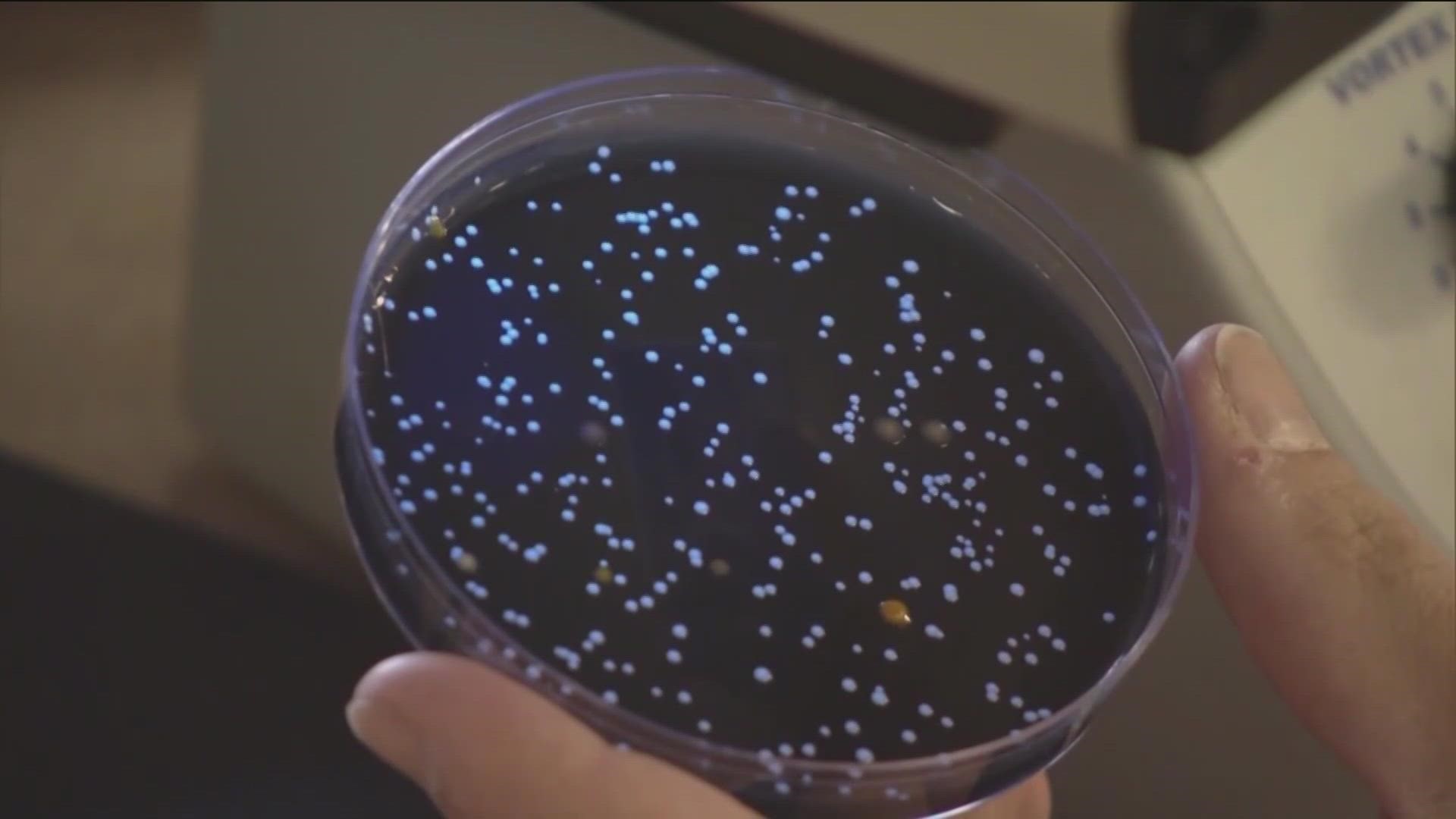STRYKER, Ohio — Editor's note: This story has been updated to reflect new information made available in a CCNO press release issued Friday.
An inmate at the Corrections Center of Northwest Ohio (CCNO) has tested positive for Legionnaires' disease, prison officials confirmed Friday morning.
In a statement, CCNO representatives said the inmate tested positive for the bacteria while at a nearby hospital for a procedure. During an emergency meeting Friday morning, prison officials said the inmate had been in the hospital for eight days when doctors recorded a positive result and subsequently informed CCNO officials.
To determine from where the inmate contracted the disease, officials said they would work with Water Management Advisors, a consulting company out of Bowling Green, to test the prison and hospital water supplies and mitigate further risk. Per their website, Water Management Advisors specializes in educating and advising facilities on managing legionella bacteria, the pathogen that causes Legionnaires'.
CCNO also said they are working with both the William County Health Department and the Ohio Department of Health to assess the issue.
In the same meeting, officials said they took vitals of inmates throughout the prison and did not find any evidence that any other people were displaying symptoms of the illness. As legionella bacteria has an incubation period of two to 14 days, officials with both the prison and hospital said they would follow all recommended safety protocols.
They also received approval to purchase sinks and shower filters until testing for the waterborne bacteria was complete. Testing began Friday with results expected to return within four days, CCNO representatives said in a press release. They also said they plan to shut off facility water and provide staff and inmates with bottled and filtered water on advice from the Ohio Department of Health and Water Management Advisors group.
In the press release, executive director of CCNO Dan Sullivan stressed the necessity of testing the facility for the legionella bacteria.
"Until we can get the testing done on the water, we're going to be doing what we can to eliminate potential exposure," Sullivan said. "It's a difficult situation because we house hundreds of people here every day, and shutting down water will be a huge ordeal. But it's necessary for everyone's safety."
Results from water testing will be used to inform further action the facility takes regarding the issue, officials said.
Legionnaires' disease is a rare form of pneumonia that affects approximately 13,000 people in the United States per year, according to the CDC.
Unlike some other bacterial infections that are transmitted directly between people, the disease is most frequently contracted when aerosolized water contaminated with legionella is aspirated. Found naturally in fresh water, legionella can contaminate hot water tanks, hot tubs, the cooling towers of large air conditioners and other man-made water supplies.
Some symptoms of Legionnaires' disease include fever, a cough, fatigue, chest pain, ataxia, diarrhea and vomiting. Symptoms can be both gastrointestinal and neurological.
No vaccine for Legionnaires' is available and the disease is usually treated with antibiotics. According to the CDC, fatality is around 10% for healthy patients and 25% for those with underlying conditions.
Legionnaires' disease gets its name from the 1976 American Legion convention in Philadelphia, where it was first identified in an outbreak.
MORE LOCAL HEADLINES FROM WTOL 11

